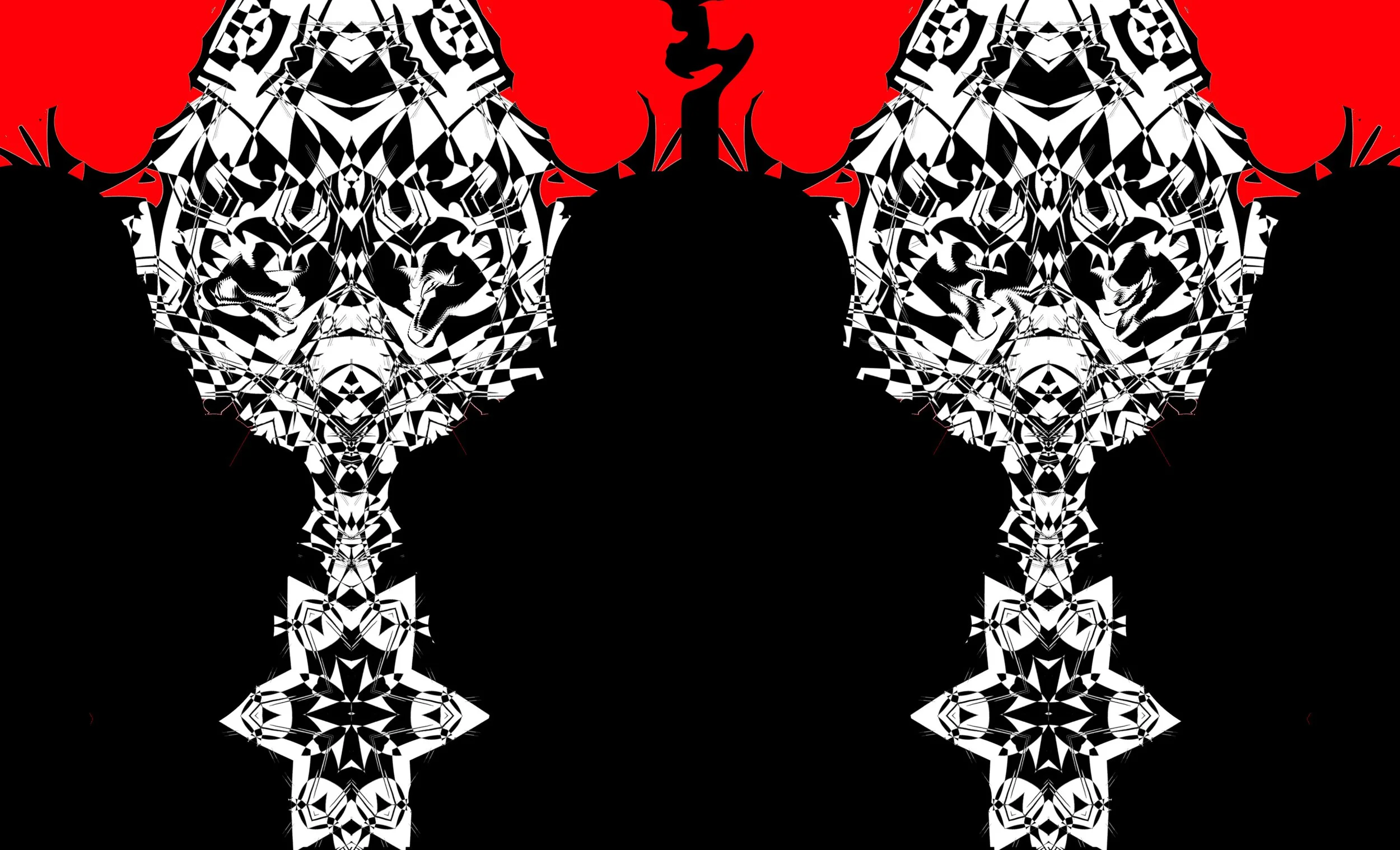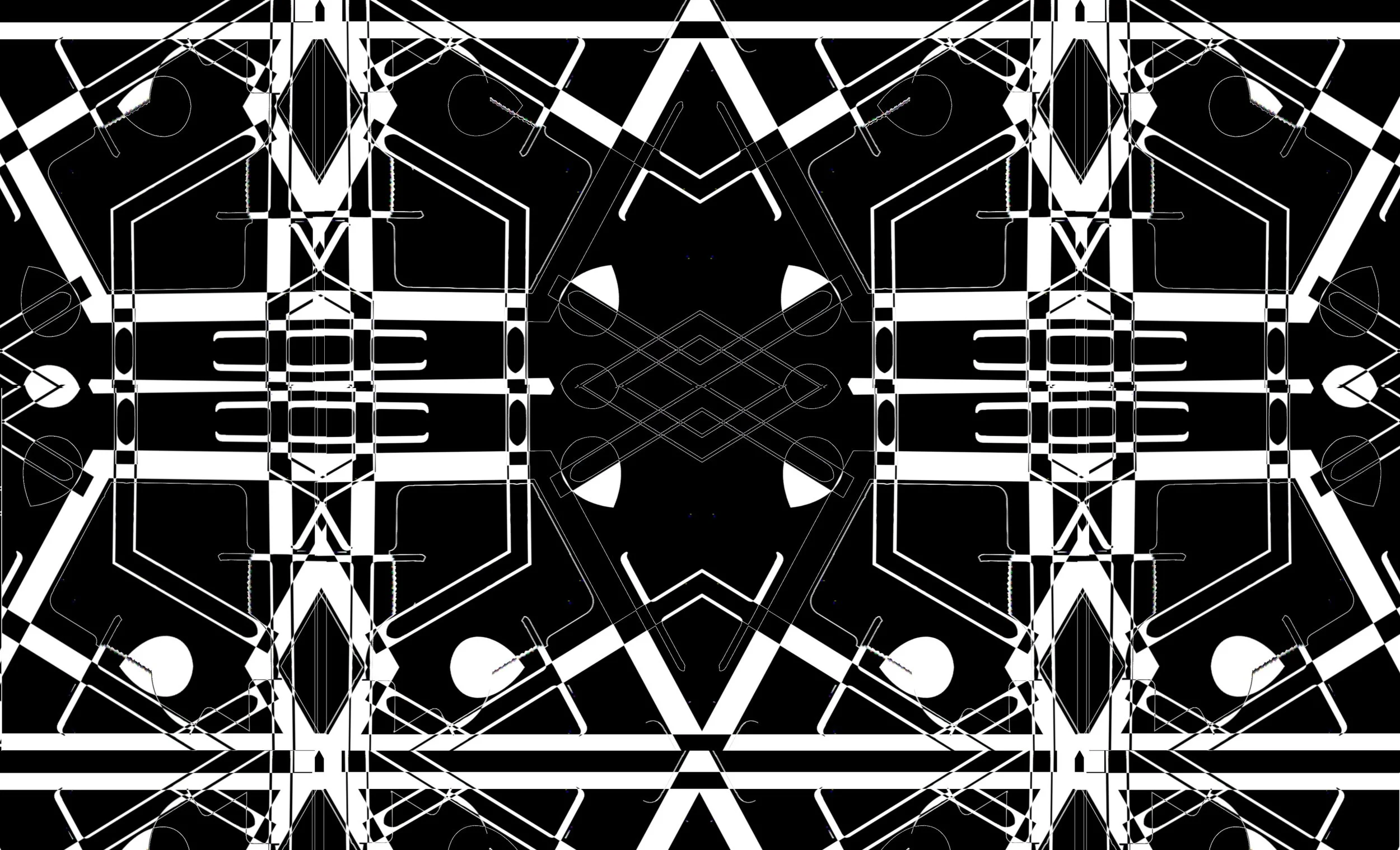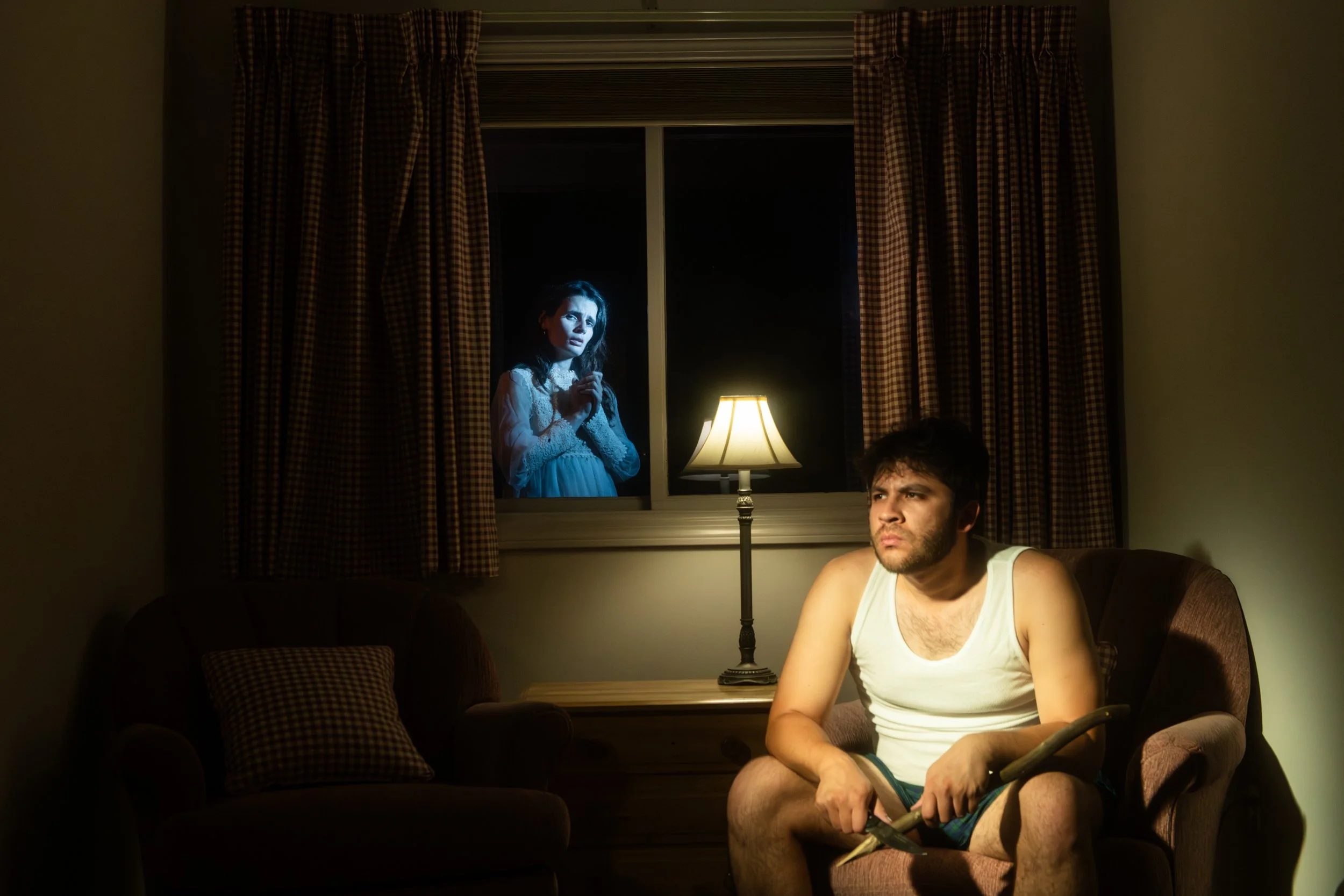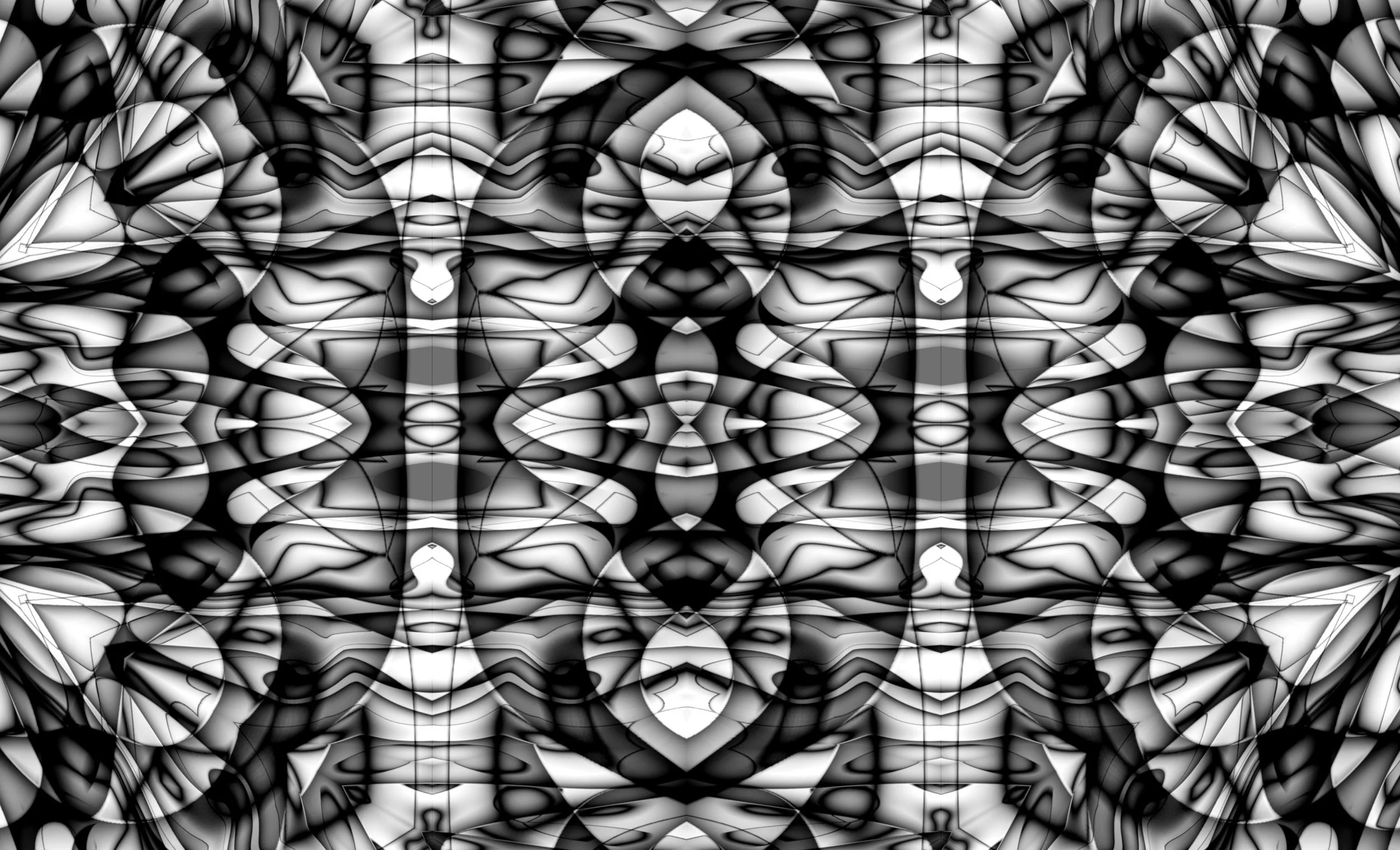
MENACE ISSUE ONE
MENACE ISSUE ONE
FEATURING
poetry
fiction
art
issue design & layout by Disha Trivedi

EDITORS’ LETTER
Welcome to M E N A C E.
The inaugural issue of M E N A C E is full of split and nested selves. A cerebral queen engages in dialogue with her head and heart and other parts. A lonely ecosystem gobbles up different people and hosts their jostling desires. As we made this issue, themes of birth and decay emerged, which reinforce the overarching theme of splitting selves. Decay is a disintegration of the self; birth is a kind of parthenogenesis, a division of mother into offspring. Birth and decay entwine from the first piece, Chloe Adina’s “Roe,” where one half of the speaker’s body carries eggs while the other half ferments, to the last piece, Yena Sharma Purmasir’s “MAIDEN NAMES,” where the mother creates “new life out of old body.” Birth and decay transcend organic matter in Edward Michael Supranowicz’s art, nested Rorschach tests that challenge our notions of form. And decay and fermentation achieve a state of rapture in nat raum’s “libations.” Throughout the issue, split selves howl, cavort, undo, and rebirth their worlds.
M E N A C E is a rebirth, a response to the splitting of the self. People on the margins are often compelled to exile parts of themselves for survival. This existence is a horror. Resisting it requires birthing a “weird” self that ranges from unlikable to monstrous, a “weird” as great and terrible as Grendel’s mother stealing men to eat. Becoming “weird” to survive and love and thrive amidst horror is fateful in the Old Norse sense of “wyrd”—a fate that is awful and full of awe, a brush with sublimity and doom, as in Ting Huang’s “Those Red Days.” These fateful split selves also haunt the work that inspires our mission at M E N A C E, like the fractured femmes of Black Swan (though when it comes to art about ballet, we prefer Anna Antongiorgi’s “STAGE NOTES”) and the cursed wives of Rebecca, in which the first Mrs. de Winter bares her teeth from beyond the grave at her successor, to scare and seduce her—and the reader.
M E N A C E is also a response to an artificial splitting between “genre” and “the literary.” Compared to literary fiction, which depicts the “real world,” contemporary publishing considers genre fiction to be less sophisticated. (We blame the CIA.) Yet the “real world” which literary fiction prizes elevates an empire of structures that deserve to be undone. The work that dares to challenge these structures and imagine new ones is so often genre, where we find stories that, in the spirit of Toni Morrison, “stood at the edge and claimed it as central.”
That’s why M E N A C E is a home for “the literary weird”—work that blends the literary and genre into new and stunning forms, like this surreal imaginary from Jaina Cipriano. The result is a magazine that we hope will get under your skin and eat up your subconscious—the opposite of brain rot, or a brain rot of its own kind, a zombie fungus that takes over the mind with chilly calm like Ling Ma’s Severance or tender doom like “The Last of Us.”
We offer you an inaugural issue that we hope has the range of Jennifer’s Body—bloody, funny, horny, queer, and terrifying. Enjoy. And remember to work from the margins as if they’re the center. Because they are.
Sophia, Disha, Stacia, and Michaella
Stay in the weirdness.
ROE
poetry by Chloe Adina
“In the bloated night
swollen with bay water
I swim, cleaved.
One half bobs—caught in the endless slip of a dress,
toneless, gnaws on a fossil.
Plum dark, heaving—are you still with me? The other ferments below,
tethered by an umbilical
of twined seaweed…”
STAGE NOTES
poetry by Anna Antongiorgi
“In the romantic ballets,
the tulle reaches the mid-calf and the ladies
always die from a mortar-pestle mix of heart
conditions and dancing. From fourth position
you can turn, yes, you can turn
well enough from fourth position,
but Balanchine’s ballerinas keep their back legs straight
because he loved to love them lined up.
Twisted man—anything for open skin….”

THOSE RED DAYS
fiction by Ting Huang
“An opaque, bloody mist had settled over the country overnight, bathing everything—the trees, our street, the old bicycle shackled to the pole outside, the newspaper stand that was somehow open 24/7—in an eerie scarlet glow.
Trains got delayed. Planes grounded. People pulled their kids out of school. And that was before the news came out about the deaths…”

COCOON
poetry by Yena Sharma Purmasir
“I’m going to rest my head full of fluttering
nightmares on the plexus of your chest. It’s not exactly
as I think it is:
the world,
our time,
small creatures in flight...
MATRYOSHKA
fiction by Satori Good
“…We jumped into things fast, which is one of our best qualities. One afternoon, we had Girlfriend blindfolded and handcuffed to our bedposts, and we noticed a long, discolored line across her stomach. She had taken self-tanner and crafted her own scar, a white thread, to resemble ours. She said, you own me. We said, it’s so easy to open up to you. Girlfriend said, please.”

POEMS MIGHT NOT PAY THE BILLS, BUT I HOPE THIS FINDS YOU WELL ANYWAY.
poetry by Anna Antongiorgi
“In the meantime, we can make an art
work and call it
a house. It needs windows into something
bloody—a heart or even just an artery or vein will do. There must be a way for light
to get inside you. From the sun. You must hinge
your ribs out like a door that won’t stay closed,
just let it sway and squeak. An open chest cavity
is an act of bravery. An open chest cavity is an invitation. An open
chest cavity is for
the lovers…”
QUEEN OF CALVARY
fiction by Anna Hundert
“The Queen gazed across the wasteland and wondered if there once was or still was a mind, or a brain, somewhere behind it all. She called her queendom Calvary, the place of the skull, from the Latin calvariae, which is to say that the end of the world is like a skull looking out from the empty spaces where it once had eyes. When everything is over, the whole world is Calvary: a word cross-stitched with sinews that once belonged to the kinds of animals that produce milk, not to be confused with that war-word, cavalry, those four horsemen who never came in their expected form. She stretched her hamstrings and imagined them as threads of thinly sliced ham and thought that the end of the world wasn’t all that bad. All she needed was a crown…”

LIBATIONS
poetry by nat raum
“i have never been to cognac heaven—for all the ways i fell in love with liquor, i never found taste buds that lined up with brandy’s woodsharp sweetness. but i imagine my lover and me, floating in amber sky among liquorspun sugar clouds, slicking honey across each others’ backs just to lick it up…”
MAIDEN NAMES
poetry by Yena Sharma Purmasir
“My mother would still love me if I wasn’t a girl. I know
because I asked again and again:
if I was a worm,
if I was a part-time boy, if I quit
a dead-end job,
and each time my mother as a mother gave me new life,
made possible my impossible dreams,
my mother made real,
my mother in a dream once pecked
my eyes out. I don’t remember a life before
my fear of birds or my fear of her…”











